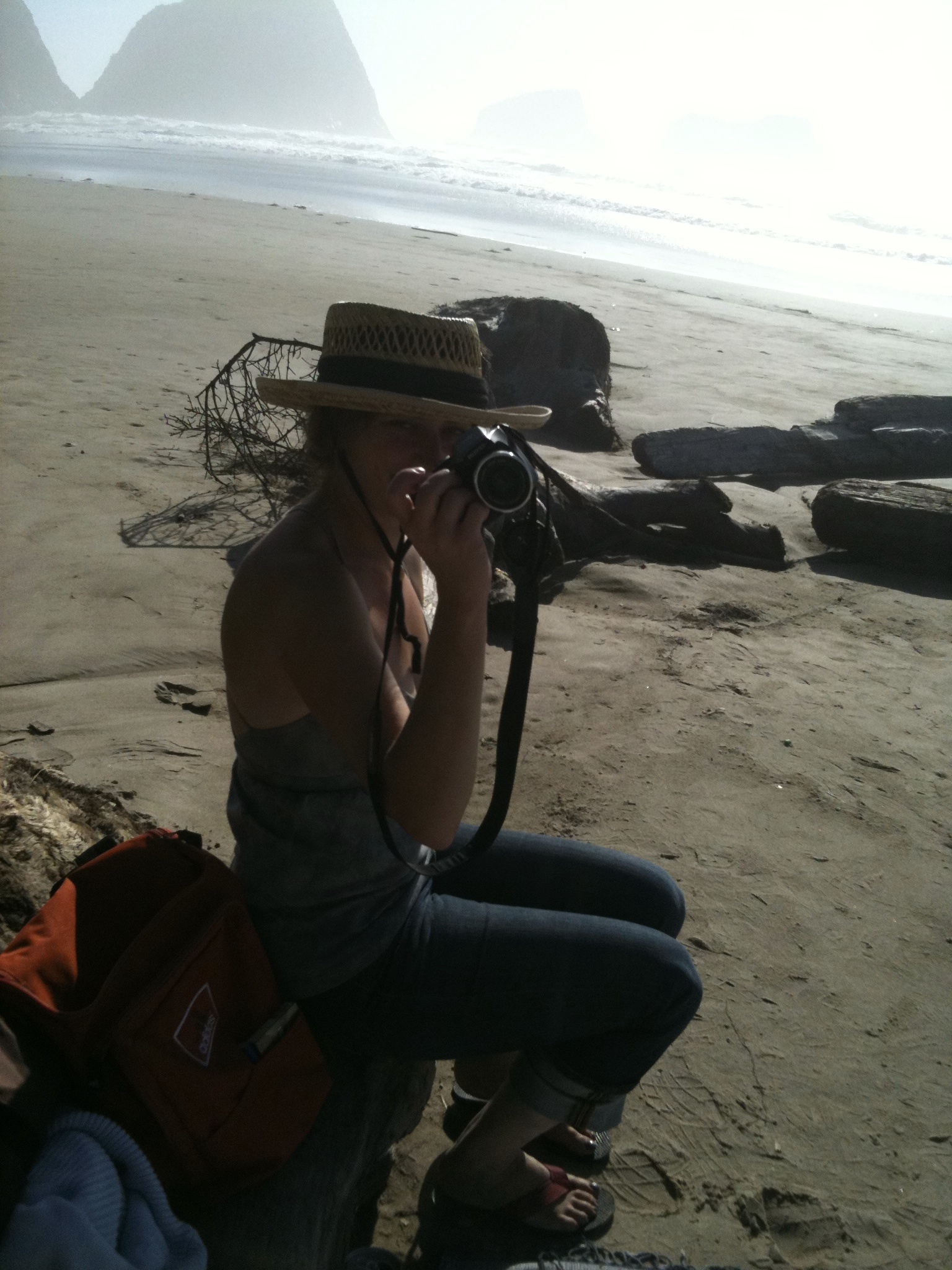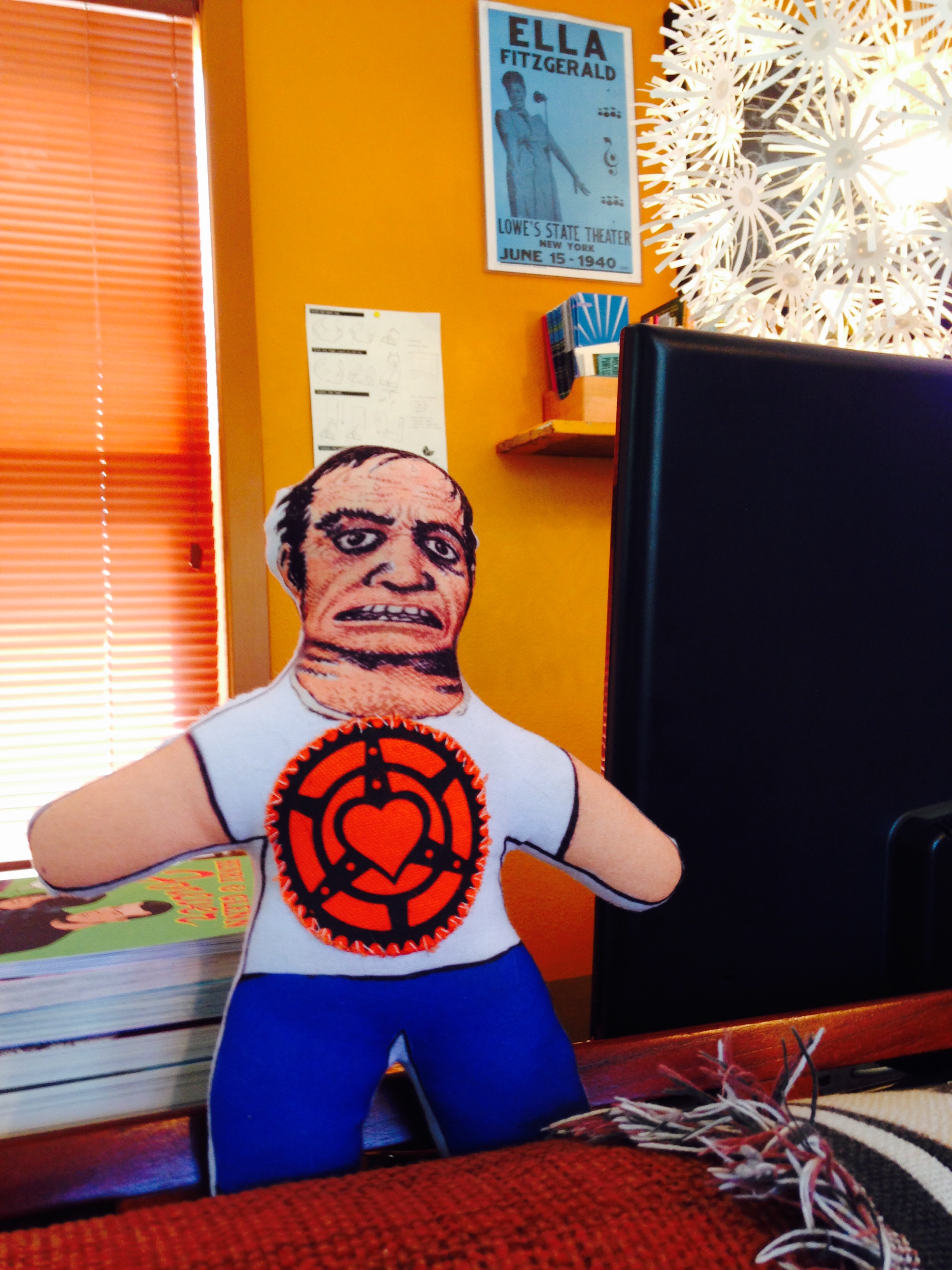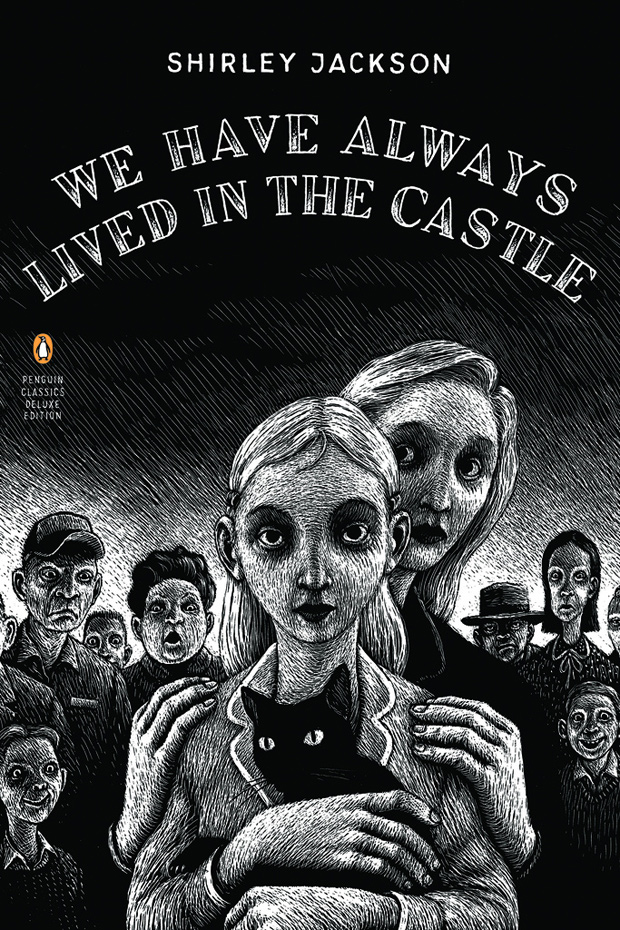Meet the Microcosm workers: An interview with sales director Thea Kuticka
 A big welcome to our newest Microcosm worker, sales director Thea Kuticka. Thea has been here for a month, getting to know our systems (aka, epic wading through lots and lots of spreadsheets), getting acquainted with everyone, and sharing her experience and insights from over a decade in publishing (and also her home grown blackberries, yum!). I asked her some questions over email.
A big welcome to our newest Microcosm worker, sales director Thea Kuticka. Thea has been here for a month, getting to know our systems (aka, epic wading through lots and lots of spreadsheets), getting acquainted with everyone, and sharing her experience and insights from over a decade in publishing (and also her home grown blackberries, yum!). I asked her some questions over email.
You’re the newest staff person at Microcosm. How are you settling in? What’s your favorite part about your work space here?
I’m very excited to have landed at Microcosm and feel lucky to be working with such a welcoming group. My favorite part of my workstation is a hand-sewn Harvey Pekar mascot sporting a Microcosm patch. Pekar is an excellent reminder of the extraordinary events that can come out of ordinary life.
What’s been the most fun?
Spontaneous conversations about food and book cover art and the pink plunger. [Editor’s note: We learned something new in the office last week: pink plungers are designed for sinks with a flat bottom. Incidentally, we are always on the look out for books to publish about DIY handy work!]
You came to us with a whole lot of publishing industry experience. Can you recap some of the highlights?
I caught the publishing bug in Eugene, Oregon, where I started out watching friends assemble skate mags with glue and scissors and plenty of hours at Kinko’s. I soon volunteered with some literary magazines (Emergency Horse, Two Girls Review, and Northwest Review), and was lucky enough to get a job at Black Sun Books (I harassed the owner daily until he finally gave in). At Black Sun, I found an amazing mentor who taught me a lot about acquiring and selling books, by hand, by suggestion, and by listening. Later highlights include working for a nonprofit Chicana/o publisher in Arizona, then joining Dark Horse Comics at a time when the big box stores were clamoring for manga and comics in book format. More recently, I fell into an outreach role for a start-up publisher with a list of beautifully created children’s books.
What’s your favorite kind of book to read? Any recent standouts? Or long-time favorites?
 My favorite kind of book to read is one that will inspire me creatively. I look for stories that come from a creative impulse. These are inspired novels and memoirs such as Woman Warrior or Blood Meridian or Giving Up the Ghost. I’ll read National Book Award books and then pick up a book on the Zodiac Killer.
My favorite kind of book to read is one that will inspire me creatively. I look for stories that come from a creative impulse. These are inspired novels and memoirs such as Woman Warrior or Blood Meridian or Giving Up the Ghost. I’ll read National Book Award books and then pick up a book on the Zodiac Killer.
I don’t like to admit this, but I am an impatient reader. If a book doesn’t grab me in the first few pages I tend to set it down. I love all types of cookbooks though (eye candy!), especially about fermentation (Wild Fermentation, yes!).
New favorites include Ruby by Cynthia Bond, a haunting ghost story of survival with a satisfying dose of magical realism. I recently discovered Shirley Jackson’s We Have Always Lived in the Castle. A new edition had been released with this haunting cover art by Thomas Ott and I had to read what was inside. See how easily persuaded I am?
What’s your favorite kind of knotty publishing problem to figure out?
There’s something very communal about sharing a good book, and for me the question is: How to get a book that I love into everybody else’s hands. Once I discover a book, I can’t help but talk about it and want to share it. There’s something intimate about reading that touches all of the senses—this may sound weird, but if a book doesn’t feel good in my hand, I have a difficult time sticking with it for two or three hundred pages. I know, they say don’t judge a book by it’s cover, but the thing is we do. We judge the cover, the size of the text, the blurbs on the back and the people who are saying, read this fucking book, it’s a New York Times pick damnit!
It’s not enough to create a good book. Now you’re competing with all of these other forms of entertainment, because for most people, reading is such a commitment (wait! There’s a movie?) that the challenge for publishers is to overcome information overload. Readers think they already know what they want to read until they find the one book on the one subject they haven’t yet discovered. It’s like being the first on your block. It’s what makes you want to share. We’ve become such expert browsers that we may have forgotten that at the heart of all of this is a community, and for a publisher like Microcosm, books are the community that informs and inspires. All of the rest—the social networking, the online gamers, and niche markets is gossip that involves books, so it may as well be Microcosm’s books. There’s so much potential emerging in the industry and that bodes very well for readers and writers alike.
Can you talk a little about the direction you think the publishing industry is heading, but also what you would like to see the future hold for books and readers?
 I’m optimistic! And this is coming from someone who tends to see the glass half empty. The desire to read is as strong as ever—it’s just how we read and the tools we use to access those ideas that have changed. It used to be TV that would kill the book, then it was gaming, now it’s ebooks. But what hasn’t changed is our insatiable need for more—we still want to be entertained, inspired, discovered—there’s a huge collaboration going on now between readers and publishers.
I’m optimistic! And this is coming from someone who tends to see the glass half empty. The desire to read is as strong as ever—it’s just how we read and the tools we use to access those ideas that have changed. It used to be TV that would kill the book, then it was gaming, now it’s ebooks. But what hasn’t changed is our insatiable need for more—we still want to be entertained, inspired, discovered—there’s a huge collaboration going on now between readers and publishers.
What this all means? The consolidation of big publishers has created opportunities for smaller publishers by providing a place where readers and authors can feel understood and appreciated. A company like Microcosm now has the ability to respond more quickly to market changes than a larger publishing house. Because readers are savvy, they adjust their habits to conveniently fit their needs. The variety of platforms also increases the ability for readers and publishers to get the word out. The downside is that there’s more of a strain on resources for small publishers when it comes to outreach. But that’s a different conversation.
How we discover, read, and access books may change, but if a publisher rethinks their strategies by printing closer to their distribution centers (domestic) and adjust their print runs to more realistic numbers, they will be more nimble in the long term.
Lots of books don’t find their readers no matter how hard you try, but it helps to take chances, and the digital world (because Twitter is free buzz) helps publishers do this—the tone is less formal, more collaborative, but the goals are similar. Rather than depending on the Oprah Factor or the coveted Publishers Weekly review, publishers can begin to understand that their readers have become some of the best advocates and sales people for the books they love. The difficulty I see now is how a small publisher can maintain an edge and still remain sustainable.
This is part of a series of interviews with Microcosm workers. The last interview was with Nathan Lee Thomas.